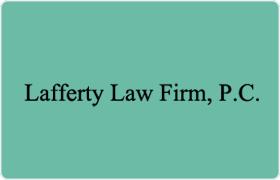Murfreesboro Credit & Debt Lawyer, Tennessee
Sponsored Law Firm
-
 x
x

Click For More Info:
-
Lafferty Law Firm, P.C.
1321 Murfreesboro Pike Suite 521 Nashville, TN 37217» view mapBankruptcy & Debt Over 30 Years Of Experience
Susan S. Lafferty is a CPA and Attorney who enjoys helping people with financial problems. She is located in Nashville, TN where she has lived for over 30 years.
800-936-9071
Ewing Sellers
Wills & Probate, Estate Planning, Family Law, Credit & Debt
Status: In Good Standing Licensed: 44 Years
Ewing Thomas Sellers
Wills & Probate, Estate Planning, Family Law, Credit & Debt
Status: In Good Standing Licensed: 44 Years
Jeffrey Russell Smith
Corporate, Credit & Debt, Elder Law, Estate Planning
Status: In Good Standing Licensed: 26 Years
Clifton Boyle Sobel
Administrative Law, Credit & Debt, Elder Law, Family Law
Status: In Good Standing Licensed: 30 Years
Cathy Gasser
Bankruptcy, Banking & Finance, Administrative Law, Credit & Debt
Status: In Good Standing Licensed: 13 Years
Mark Lee Kent
Family Law, Elder Law, Insurance, Credit & Debt
Status: In Good Standing Licensed: 17 Years
Julie Marie Dombrosky
Litigation, Credit & Debt, Family Law, Estate Planning
Status: In Good Standing Licensed: 25 Years
 Susan Lafferty Nashville, TN
Susan Lafferty Nashville, TN Practice AreasExpertise
Practice AreasExpertise
